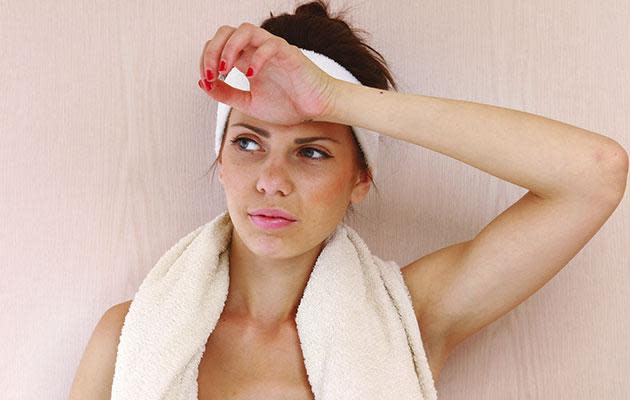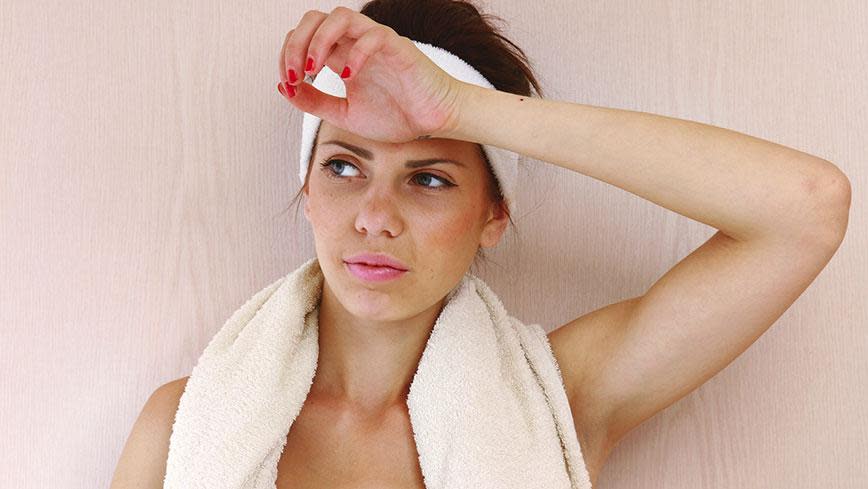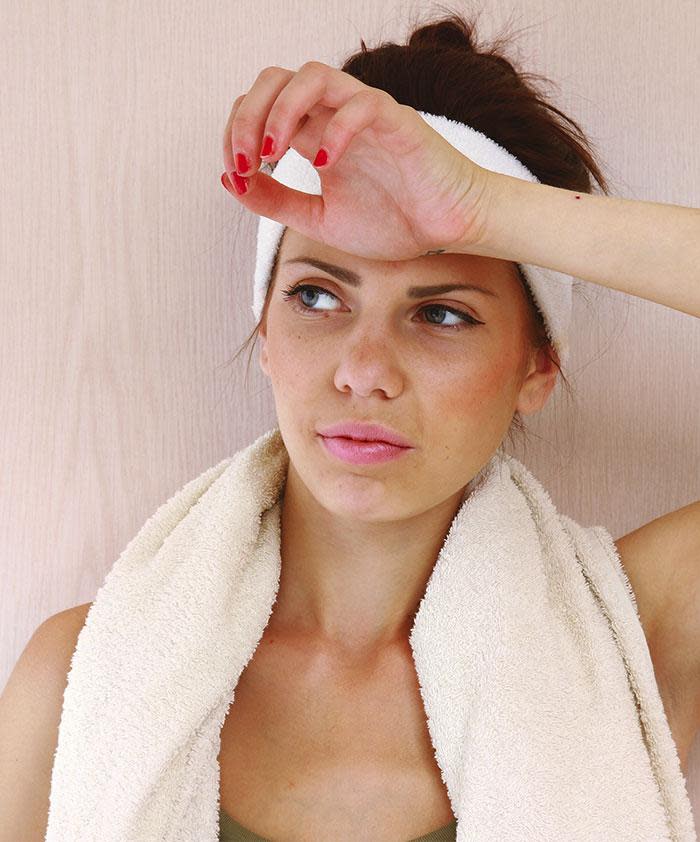Why Do Some People Sweat Way More Than Others?
There's really only one time anyone likes to sweat, and that's when you’re killing your last set at the gym. A big presentation? A first date? Job interview? No thanks. But for some of us, there isn’t enough deodorant in the world to prevent us from sporting pit circles. What’s the deal?
First Things First: Why We Sweat
While we all know that one person who could remain dry through a marathon, sweating is completely normal. “We sweat to help regulate our body temperature,” says Debra Jaliman M.D., an assistant professor of dermatology at Icahn School of Medicine at Mount Sinai. “It allows our body to cool off through evaporation.” Everything from stress to a sunny day can raise your core temperature, causing your body to react by sweating.
RELATED: How To Get Rid Of Spin Class Face
RELATED: I'm Working Out Regularly So Why Am I Gaining Weight
Uh, But This Is More Than Just a Glow…
While sweating is totally natural, some 220 million people worldwide (about three percent of the population) suffer from excessive sweatiness, a.k.a. hyperhidrosis. The glands that are responsible for sweating are called apocrine glands, and in patients with hyperhidrosis, these sweat glands are overactive, producing much more sweat than is needed to cool the body.
The condition is most often associated with sweaty pits, but only two percent of your body’s sweat glands are actually located there. That means hyperhidrosis can also affect the feet, hands, head, and other parts of the body. So how do you know if you have it? A doc can confirm the diagnosis, but you might have hyperhidrosis if you find yourself sweating through your clothing, getting skin problems from excessive wetness, or sweating even when you aren’t exerting yourself.
How to Keep Things Under Control
If your sweat is causing you stress and embarrassment, start with an at-home plan of attack by upping the kind of antiperspirant you use. “Patients can start with ‘clinical strength’ antiperspirants such as Degree, Secret, or Mitchum,” suggests David E. Bank, M.D., a board-certified dermatologist, assistant clinical professor of dermatology at Columbia Presbyterian Medical Center, and author of Beautiful Skin: Every Woman's Guide to Looking Her Best at Any Age. “Specialized antiperspirants for excessive sweating such as Certain-Dri and prescription-strength Drysol have been on the market for years and are proven effective with regular use for many people with excessive sweating.” For best effectiveness, apply the product at night, suggests Jaliman. This gives the antiperspirant time to absorb into your skin and really begin to work.
Since 2004, Botox has been FDA-approved for treating severe sweating in both the underarms and palms, says Bank. Just as the famous face-freezer works to prevent those furrow lines from forming, Botox also temporarily blocks the release of the chemical that turns on your sweat glands. According to the International Hyperhidrosis Society, Botox injections have been shown to reduce sweating 82 to 87 percent. Patients see results, which typically last seven to 12 months, in just two to four days.
The latest FDA-approved anti-sweat solution is miraDry, which “uses microwave energy to heat and destroy the sweat-producing glands in the underarm,” explains Bank. The full treatment takes about an hour, and three treatments six weeks apart are recommended. While the effects are permanent, it's expensive (about $2,000-3,000 for two treatments) and may not be covered by insurance.

 Yahoo Lifestyle
Yahoo Lifestyle 


